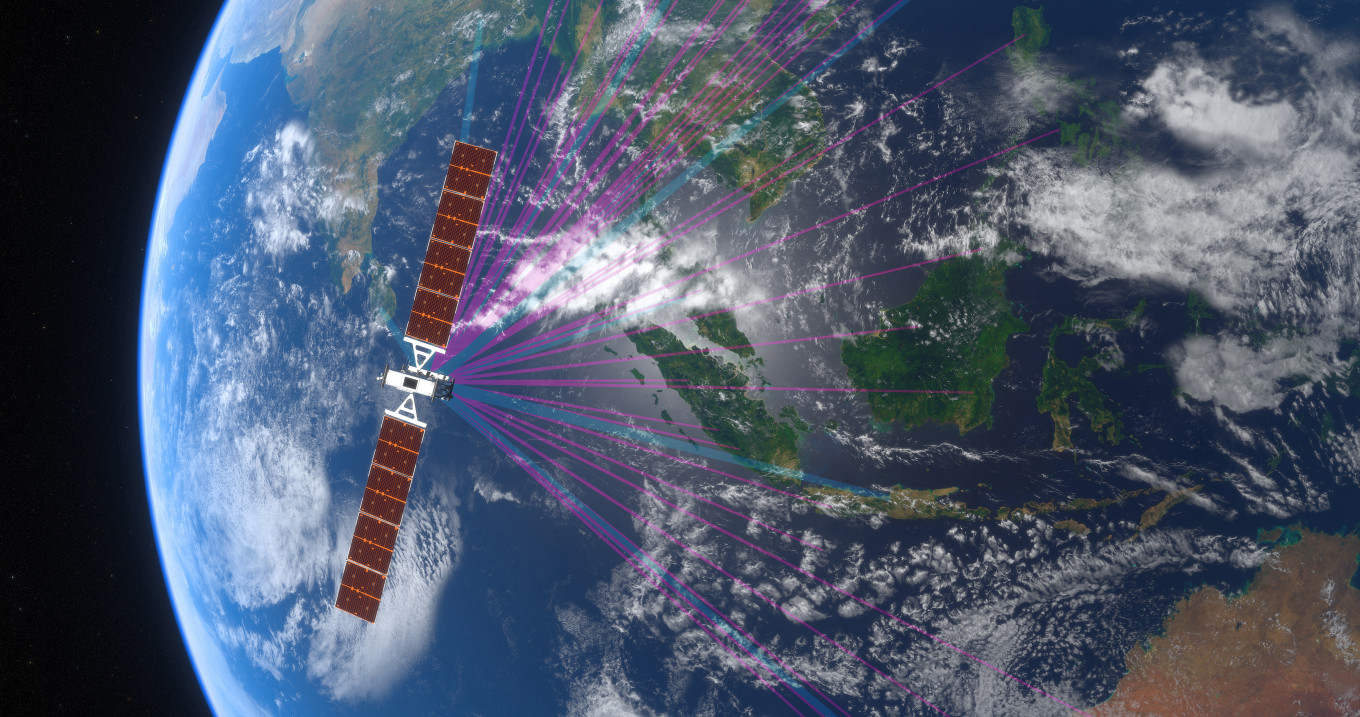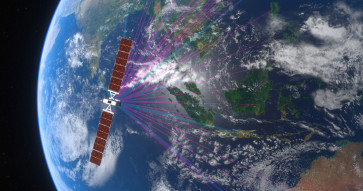Popular Reads
Top Results
Can't find what you're looking for?
View all search resultsPopular Reads
Top Results
Can't find what you're looking for?
View all search resultsSpace economy is the future, but can Indonesia realize it?
Law No. 21/2013 provides the government legally-binding outer space regulations. However, these regulations are still of a general nature and require a number of implementing regulations on specific matters.
Change text size
Gift Premium Articles
to Anyone
T
he space economy is arising and transforming concurrently with the expansion and profound transformation of the space sector and the continued incorporation of space into society and the economy. The space industry is not only a growth sector in its own right, but also a crucial growth enabler for other industries.
Space-for-earth applications rely heavily on satellite technology in space. Utilizing satellite-based internet services that can reach the most outlying areas facilitates the equitable distribution and affordability of internet access for all. Due to underdeveloped or rural areas, establishing a terrestrial network can be difficult or costly.
By employing satellite-based internet service technology, people in rural and remote areas will enjoy equal internet access provided to those in urban areas. Satellite technology can also help develop the agricultural sector. Space-based remote sensors collect images, data on weather patterns, and electromagnetic wave measurements, all of which can be utilized for agricultural purposes.
According to McKinsey's annual digital farmer adoption survey, nearly 29 percent of row-crop farmers and almost 50 percent of specialty-crop farmers rely on or intend to begin using such data. Farmers will realize the greatest benefit from satellite sensors when they are able to increase, if not multiply, crop yields.
On top of internet services and farming, satellite technology is badly needed in the mining industry. Satellites can ease the work of mining companies, especially if they operate in remote areas. The mining industry can use satellite imagery to generate emission maps, track shipments along the supply chain and locate mineral-rich areas. A big part of the business depends on how well satellite technology can send a strong signal uninterrupted.
Mini satellites in Low Earth Orbit (LEO) are the best way to meet these needs. Placing a mini satellite in LEO will reduce the cost of launching a satellite because it is small and weighs less than 1,000 kilograms.
The Indonesian government’s masterplan to build a spaceport in Indonesia shall provide an excellent opportunity to create economic value from space activities. The cost of launching satellites by the state or private companies will be reduced. There will be no need to launch satellites on foreign soils.
















